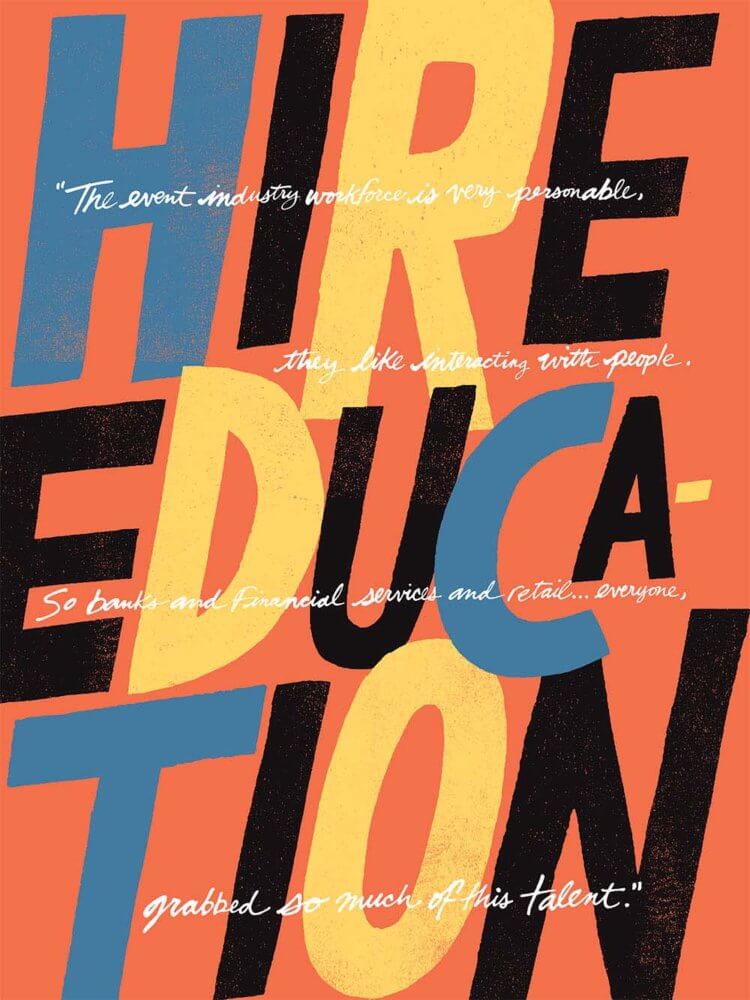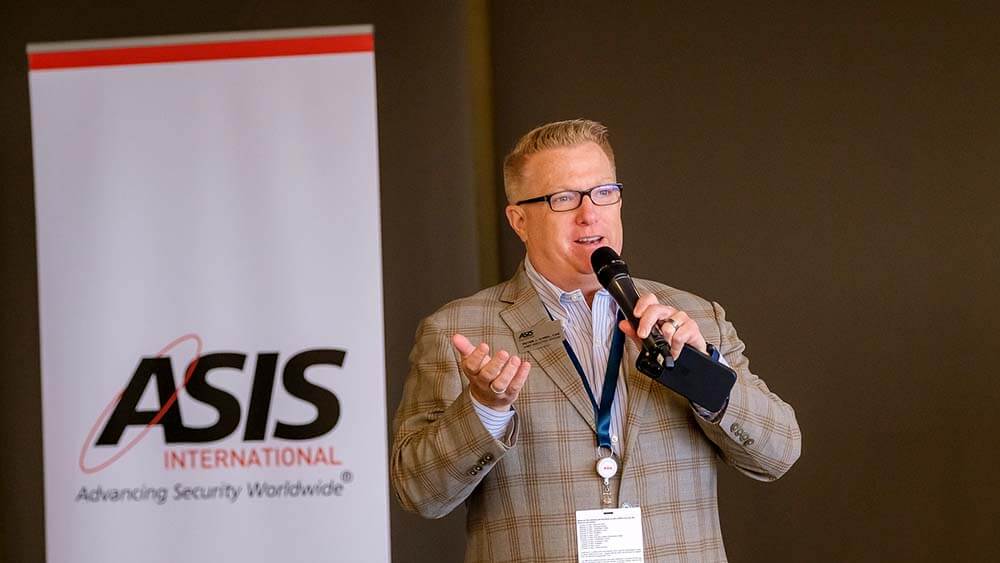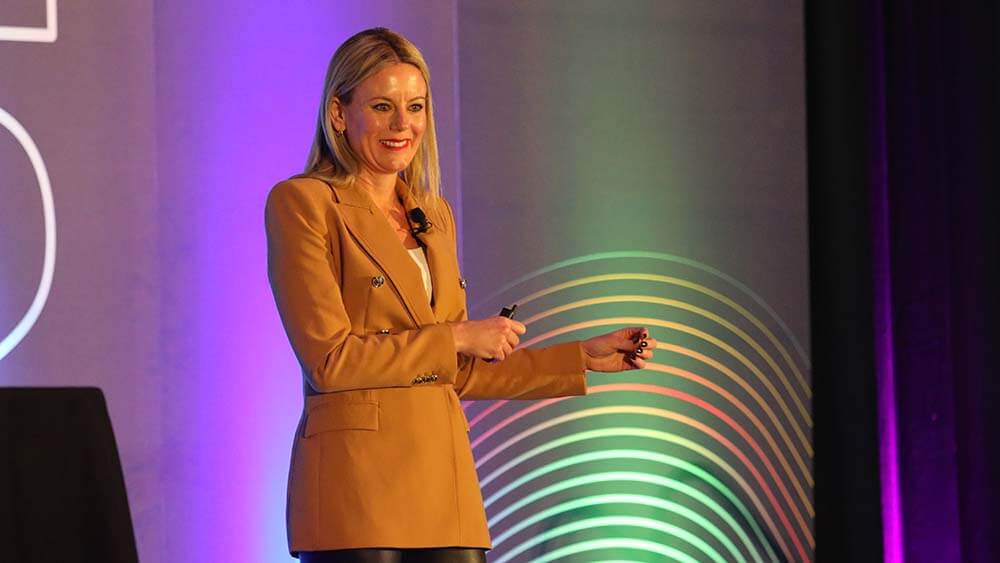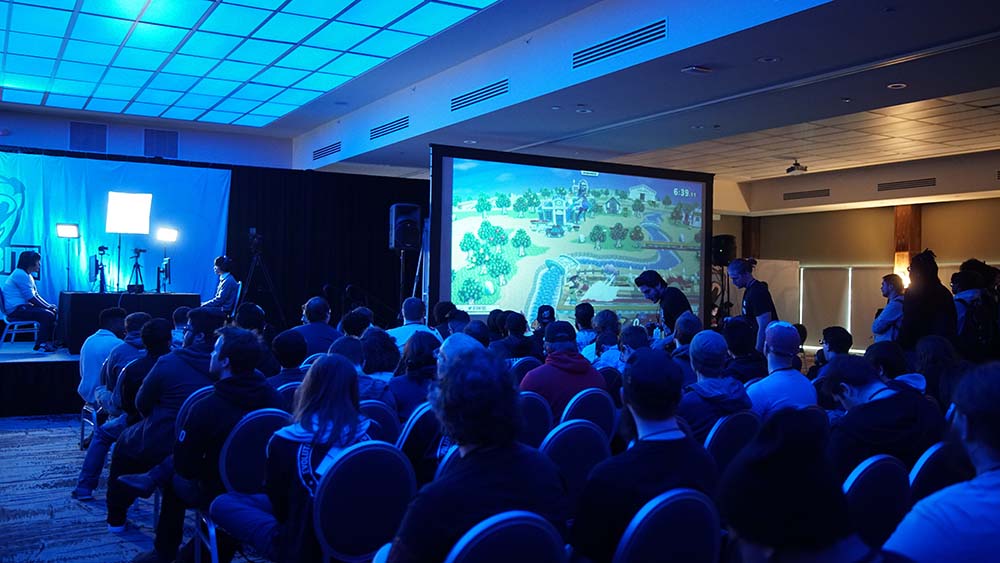 By 2030, there will be a global human talent shortage of more than 85 million people. That prediction, based on research conducted by global management consulting company Korn Ferry, isn’t some dry, far-off statistic. Leaders who participated in the 2022 Fortune 500 CEO survey said they viewed a talent shortage as the No. 1 threat to their business — not in the future, but today.
By 2030, there will be a global human talent shortage of more than 85 million people. That prediction, based on research conducted by global management consulting company Korn Ferry, isn’t some dry, far-off statistic. Leaders who participated in the 2022 Fortune 500 CEO survey said they viewed a talent shortage as the No. 1 threat to their business — not in the future, but today.
It seems no industry has escaped the talent crunch, but for the events industry, hit particularly hard by the pandemic, the severe lack of people to get the job done as business returns really stings. To get a better sense of what we are up against, Convene spoke with leaders at an association, venues, and staffing solutions companies, as well as faculty teaching the next generation of event professionals, and culled comments from a recent Convene survey. Here is a sampling:
“We lost some good people in this part of the [events] profession as a result of how they put their heart and soul into all they did, only to be furloughed and/or laid off,” ASIS International CEO Peter O’Neil told Convene — and they aren’t coming back.
Those who have remained in the industry are stretched thin, working with reduced staff on their teams. “I now find myself doing the work of three full-time staff,” wrote one planner respondent in Convene’s April Dashboard survey. “It’s unsustainable.” On top of that, planners are trying to cobble together face-to-face events with partners who are also struggling with staffing issues — leaders at convention centers and AV companies also told us they are having difficulty attracting talent.
“Things are coming back so fast at a time when we don’t have the infrastructure to support it,” said Tracy Judge, MS, CMP, founder of staff sourcing company Soundings. “And there’s so much pressure internally” on planners, she told us, “to put on this awesome event.”
According to a U.S. Travel report summary, “A widespread trend of individual introspection and a re-evaluation of long-term career goals combined with a new generation of workforce that has a different value system is having an impact.”
It’s a sentiment echoed by Michelle Holm, a Rosen College of Hospitality Management lecturer at the University of Central Florida: “I think students are continuing on with their education as they originally planned, but the students who were [particularly] affected [by the pandemic] are looking at it a lot differently than they used to.”
Which means the events industry itself has to change in order to attract talent and remain both viable and vital. We explore what that may look like in the ‘Hire Education’ articles listed below.
THE CEO PERSPECTIVE
How One Association is Restaffing the Events Team
What does the leader of a large professional association look for as he restaffs his events team? Digital capabilities, for sure, but soft skills — and the ability to ‘see the landscape’ — are equally important. READ MORE
THE STAFFING SOLUTIONS AGENCY PERSPECTIVE
It’s Time to ‘Think About Talent Differently’
Tracy Judge expanded the business model of her staffing solutions agency and as a result attracted more independent meeting and event organizers. READ MORE
THE RECRUITER PERSPECTIVE
Stopping the ‘War on Talent’
Fixing employee burnout requires industry leaders to change their perspectives on what it means to value their workers by fostering an environment of wellbeing that allows employees to thrive. READ MORE
THE VENUE PERSPECTIVE
‘Everybody Is Having a Difficult Time Attracting Talent’
Four women who lead operations at global convention centers share their thoughts about how they and their venues are handling the talent challenge. READ MORE
THE ACADEMIC PERSPECTIVE
Expanding the Talent Pipeline
While the U.S. Bureau of Labor Statistics projects employment in the events industry to grow much faster than the average for all occupations, some faculty at hospitality schools are seeing a decline in interest. They have some suggestions to reverse this trend. READ MORE
THE PLANNER AND SUPPLIER PERSPECTIVE
The New Events Staffing Landscape is ‘Unsustainable’
Events planners and suppliers say staff reductions have created additional responsibilities for those still on the job — and many are at the breaking point. READ MORE






